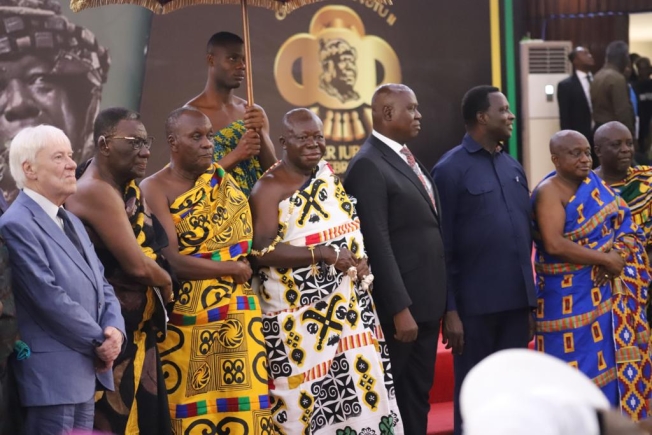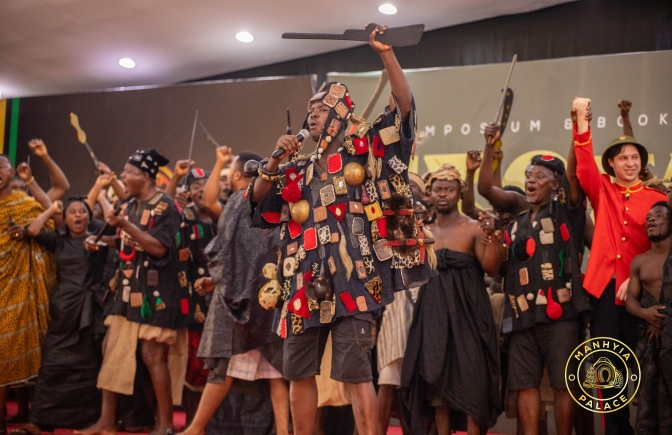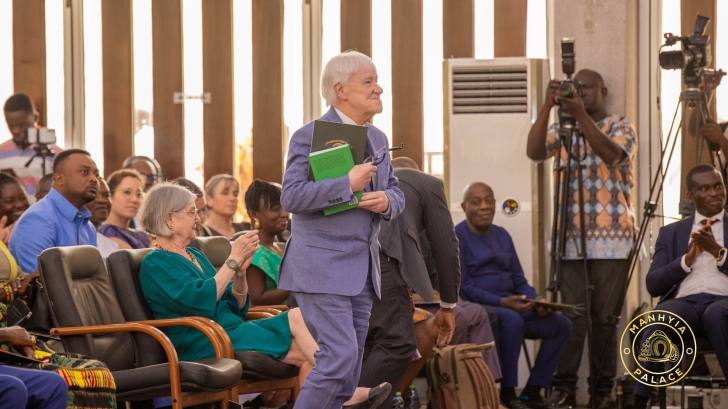A book on the history of Asantemen, written by Otumfuo Sir Osei Agyeman Prempeh II, has finally been launched in Kumasi, more than fifty years after his passing.
The autobiography of the 14th Asantehene, who ruled from 1931 to 1970, was edited by Prof. Tom McCastie, an Asante history expert at the University of Birmingham’s Centre of West African Studies in the United Kingdom.
The book launch was a part of the events honoring the Asantehene Otumfuo Osei Tutu II’s silver jubilee and the 150th anniversary of the Sagrenti War.
Dr. Yaw Osei Adutwum, the Minister of Education, stated during the book’s debut that it is a useful study tool and attempts to close historical gaps in Ashanti history.
It is notable for being a thorough narrative, having been written by the late Otumfuo Sir Osei Agyeman Prempeh II and edited by a distinguished Asante history specialist.
Dr. Adutwum emphasized the importance of the book for young readers and invited authors to write children’s versions of it. He emphasized that every library in the country should have access to this Asante Kingdom history.
A 150th anniversary symposium on the Sagrenti War, which portrayed the battle between the Asantes and the British Colonial Army, took place before to the launch.
Emmanuel Jewel’s play Peprah Mensah examined the effects of the war, bringing to light the stolen wealth and royal jewels that were taken and are thought to be worth over £2 billion; some of these treasures are still on display in UK museums.
According to Professor McCastie, British colonialists allied themselves with other tribes in order to subjugate the Asante Confederacy, which was becoming more and more powerful.
Speaking during the symposium, Prof. Eugenia Anderson emphasized the crucial role that Asante women played. She named three queen moms, Afia Kobi, Nana Yaa Akyaa, and Yaa Asantewaa, who zealously guarded the golden stool, which represents Asante unity.





